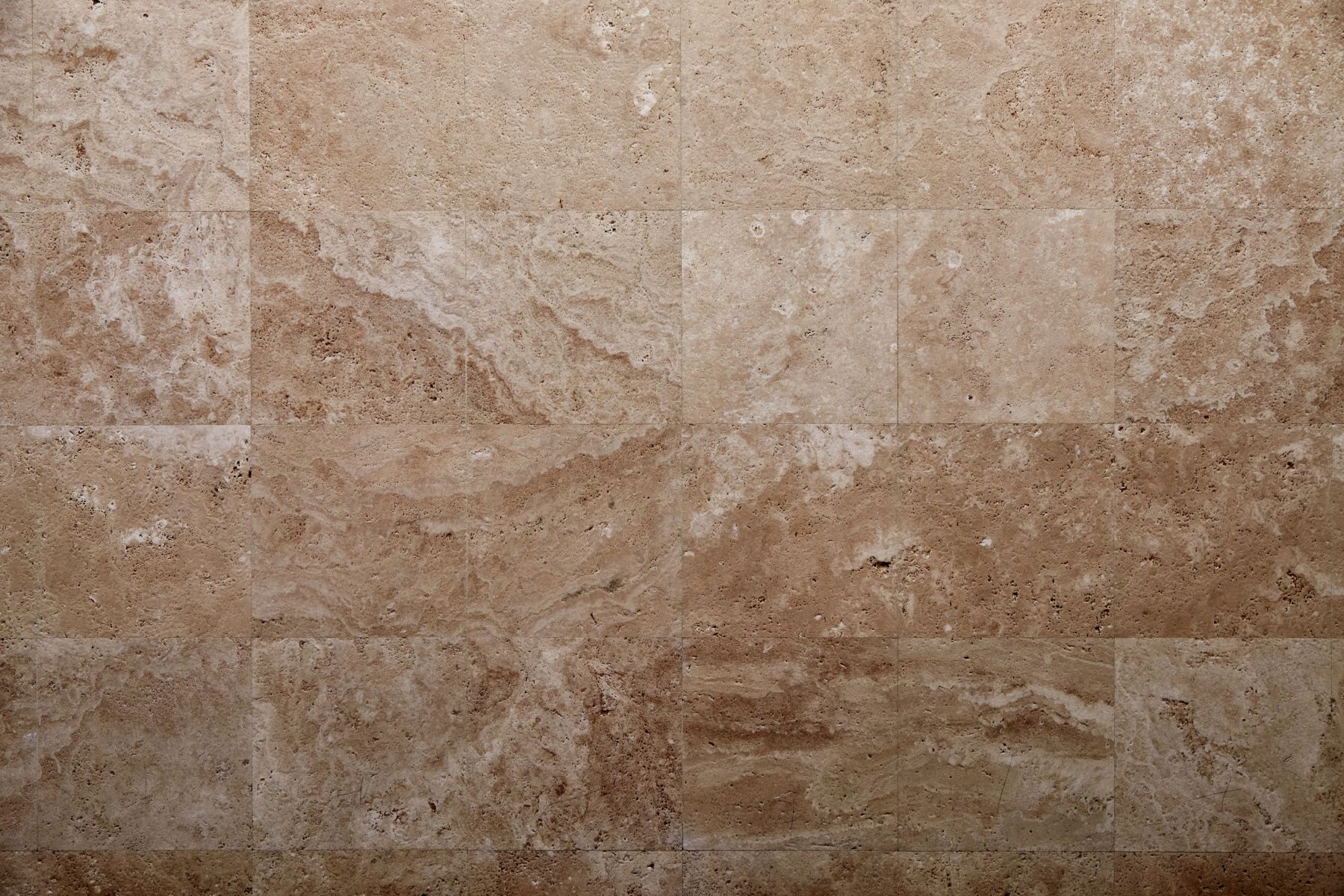Photo by TaniaJoy On Envato Elements
Travertine tile refers to a kind of limestone formed from mineral deposits of natural springs. This sedimentary rock originates from the rapid deposition of calcium carbonate, or calcite. The fusion of other minerals with calcite results in unique swirls and movements, giving travertine its unique character.
Varieties of Travertine Finishes
Travertine’s versatility is seen in its myriad of finishes that help to achieve your desired aesthetic.
- Polished: Polished travertine offers a luxurious look thanks to its high shine. This finish is achieved by smoothing and glossing the tile to create a reflective surface.
- Honed: Honed travertine gives a smooth, matte finish without any gloss. The honed finish can be filled or unfilled and is created by grinding and buffing one side of the raw stone.
- Brushed: For a natural travertine look, consider the brushed finish. This textured finish showcases an unfilled exterior for a rustic yet sophisticated appearance. This is achieved by brushing the stone’s surface with a brush or wire wheel until the desired texture is reached.
- Tumbled: Tumbled travertine is created by cutting and sizing pieces of stone, then tumbling them in a rubber-coated or plastic barrel with abrasive grit and water, sometimes with a small amount of acid. The tumbling process softens and wears down the stone edges, resulting in a natural, worn appearance. Like brushed travertine, it has a highly textured finish but with softer edges.
Travertine Colors
Travertine offers an impressive array of natural colors, from shades of beige, brown, and taupe, to even a shiny silver grey. This range of color options underscores the stone’s versatility in design. Given that travertine is a natural stone, high coloration, and movement variation can be expected, meaning no two designs will be identical, even with the same stone. It’s crucial to lay out your tiles in the design you wish before installation to achieve the desired look.
Preferred Installation Sites?
Travertine is typically used in bathrooms due to its naturally slip-resistant texture when unpolished. This makes it ideal for bathrooms, showers, and floors. If you live in a warm climate, travertine is a suitable choice for surrounding pools.
Durability
Travertine falls somewhere between marble and granite in terms of hardness. It is prone to scratching if unprotected, so caution is advised when moving heavy items on travertine floors. Consider the finish type and the area of installation. Like other natural stones, travertine can be quite durable.
Contact Us 713-827-4759

